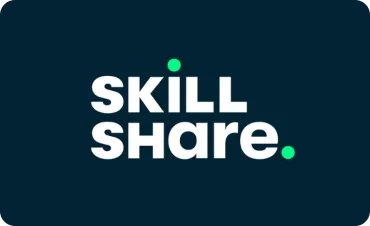When you enroll through our links, we may earn a small commission—at no extra cost to you. This helps keep our platform free and inspires us to add more value.

Introduction to Object Oriented Programming: A Conceptual Approach
Unlock creativity with Skillshare! Learn acrylic painting, AI writing, graphic design, and photography.

This Course Includes
 skillshare
skillshare 0 (0 reviews )
0 (0 reviews ) 2 hours 37 minutes
2 hours 37 minutes  english
english Online - Self Paced
Online - Self Paced course
course SkillShare
SkillShare
About Introduction to Object Oriented Programming: A Conceptual Approach
Object Orienting Programming, introduction
Introduction to Software Development
Object Oriented Thinking
The Tools of the Trade
Creating a System Description
Some Fine Points
Creating the Program Structure
Analyzing the Behavior
Creating Code Algorithms
Review the Concepts
Determine the Implementation Strategy
Setting Up the Programming Environment
Build A Little Test A Little
Creating Your First Class and Object
Build Robust Getters and Setters - Part 1
Build Robust Getters and Setters - Part 2
Build the Methods/Functions
Final Thoughts - Things to Remember
What You Will Learn?
- Object Oriented Programming: A Conceptual Approach.
- Do you find that object oriented programming is confusing and you just want to understand the concepts? If so, this class is for you!.
- The course flips the “programming first” model of teaching object oriented programming to a “concept and process first” approach, where you will learn the fundamental object-oriented concepts and how to design a program before you build the program. Equipped with these foundational concepts and design skills, you can apply these skills to any object oriented programming language..
- Tevis’s 30 years of practical software engineering experience shows that general processes and concepts are the same for all programming languages—the only difference is how each language implements the concepts. Tevis’s experience shows that being able to program is vitally important, but understanding the concepts and the development process are just as, or more, important than learning a single programming language..
- This course is designed for students that have some introductory programming experience (you don’t have to be an “expert”) and in this class you’ll learn:.
- For the project, you will start from “scratch” and analyze, design, and incrementally build a basic academic program that re-enforces the object oriented concepts and program structure..
- While having some programming experience is necessary the lessons and project focus on program structure, and NOT on complex algorithms. Don’t let a lack of programming experience scare you, the lessons show a lot of examples and you will take “baby steps” with no giant leaps of intuition. As long as you can create a program with basic control structures (decisions and loops) you will do fine..
- This introductory course will start you on your road to understanding object oriented concepts and programming, which will expand your opportunities and broaden you skills as a software developer!.